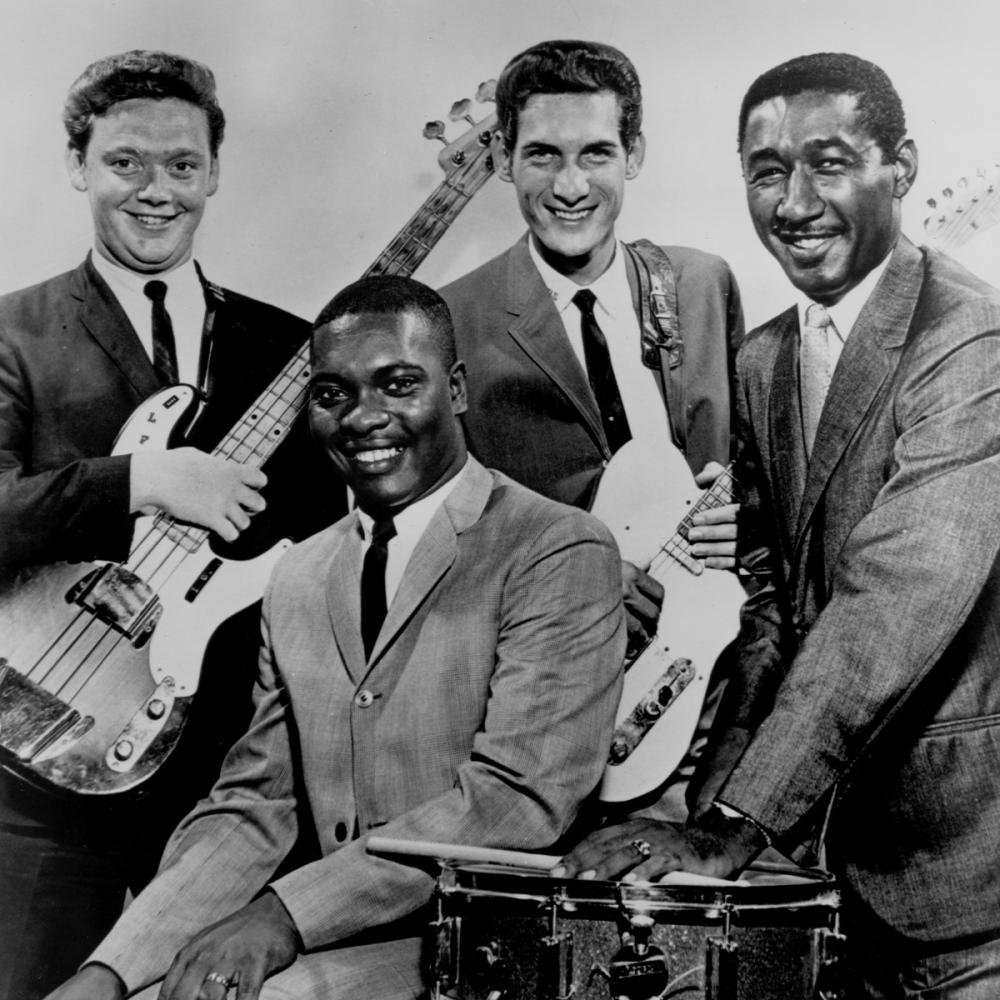Just as Motown relied on its house band, the Funk Brothers, Stax Records depended on the talents of its own in-house ensemble, Booker T. and the MGs. This group defined the sound of Southern soul throughout the 1960s. Formed in 1962 out of the earlier group the Mar-Keys, Booker T. and the MGs became one of the most influential backing bands in American music history. They were also notable for being among the first racially integrated rock and soul groups. The band’s classic lineup included Booker T. Jones on Hammond B3 organ and piano, Steve Cropper on guitar, Donald "Duck" Dunn on bass—who replaced original bassist Lewie Steinberg in 1964—and Al Jackson Jr. on drums. Their contributions were central to the identity of Stax Records and as essential to its sound as the label’s biggest vocal stars.
Unlike the meticulously arranged and layered tracks recorded at Motown, Booker T. and the MGs often developed their backing tracks spontaneously. Much of their work was improvised live in the studio, allowing for a raw and organic quality that became a hallmark of Memphis soul. Their rhythm section created a distinctive feel through the use of a delayed backbeat, where the snare drum and rhythm guitar struck beats two and four slightly behind the pulse. This subtle lag created a sense of laid-back tension, making the groove feel as if it teetered on the edge of slipping out of time. That rhythmic looseness became a defining feature of the Stax sound and contrasted sharply with Motown’s cleaner, more polished style.
Stax songs often relied on simple verse forms, with few if any choruses. Repetition and subtle variation were key, and most tracks opened with a bold horn riff before settling into the groove. Booker T. and the MGs backed a wide range of Stax artists, including Otis Redding, Sam and Dave, Wilson Pickett, Carla Thomas, Eddie Floyd, Rufus Thomas, and Johnnie Taylor. Their understated but precise playing supported vocalists while also injecting each track with unique instrumental character.
In addition to their work as a studio band, Booker T. and the MGs also recorded under their own name. Their breakout hit, "Green Onions" (1962), originated from an impromptu studio jam and became a number one hit on the R&B charts. They followed it with a series of successful instrumental singles, including "Bootleg" (1965), "Hip Hug-Her" (1967), "Soul Limbo" (1968), "Hang ’Em High" (1968), and "Time Is Tight" (1969). These recordings showcased their ability to create intricate instrumental textures, often pairing guitar and keyboard lines or featuring bass parts that acted as melodic counterpoints rather than simple rhythmic support.
Booker T. and the MGs played a foundational role in shaping the Stax sound. Their grooves underpinned iconic recordings such as Otis Redding’s "(Sittin’ On) The Dock of the Bay" and Sam and Dave’s "Soul Man." Their legacy lies in elevating the role of the house band from anonymous session players to core architects of a genre-defining sound.
